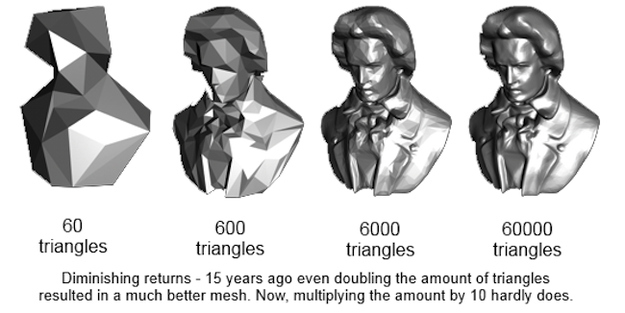Computer Tech Eases Off the Gas
Posted by Rampant Coyote on December 2, 2015
Heh – after yesterday’s awesome comparison of the 1957 Elliott 405 to last week’s release of the Raspberry Pi Zero, here comes news that the phenomenal growth in computer power over the decades may finally be hitting the limits of both physics and economics. Moore’s Law isn’t coming to an end, exactly, just downshifting a little bit with slower growth:
Bloomberg Business: Chips Aren’t Getting Much Smaller, and That Stinks for Intel
This is probably not bad news if you are the type who hates having to constantly upgrade their phone and/or computer because of obsolescence. Now electronics will take ~66% longer to become obsolete!
I think part of what might be driving it (besides, you know, science and physical limits to sizes, until we get quantum computing figured out) is simply that we’ve hit the law of diminishing returns in many areas. Back in the 80s and 90s, the difference in performance between two-year-old tech and modern tech was extreme. This made game development on PCs particularly challenging, because it was a fast-moving target. If you were too optimistic, your game was unplayable on any but the most bleeding-edge machines when you released. If you were too conservative, your game looked dated and boring the day it released. The difference in horsepower was that noticeable.
Now, not so much… And if consumers don’t notice the difference, demand will drop. For example, if you double the polygon count of a model, it’s hardly noticeable nowadays, as this graphic that has been circulating for several years illustrates:
I still like having what was once considered astronomical amounts of RAM and drive space becoming available for cheapski, pennies-on-the-gigabyte. I’ve lived with Moore’s Law (or better) being kind of a guidepost for how technology will advance for my entire career, and so any suggestion that it’s slowing down does give me some misgivings.
But realistically, I don’t see this being a huge impact in my life. I’m not one of the guys pushing the bleeding edge who will have to wait longer for tech to catch up to my vision.
Filed Under: General - Comments: 4 Comments to Read

Maklak said,
I think game consoles also contribute to slowing game tech down. AAA games have to run on consoles and there are complaints when they look better on PCs.
I used to have to upgrade computers every 5 years, now I can get away with 8 or ten.
Rampant Coyote said,
In the 90s, I’d upgrade every 2-3 years. On off years, I’d upgrade the hard drive and the motherboard (and towards the end of the 90s, the graphics card). Then I’d replace the system. Back then, you could find computer parts stores locally and build your own.
Nowadays… I do about the same thing but it’s spread out over about 6 years.
There’s just not much need, IMO. It often feels like the leading contributor to slow speed is Windows itself.
Maklak said,
Ah, I don’t count buying more RAM or another hard drive as an upgrade and sometimes not even buying a new processor. A major upgrade is when I buy new mainboard, processor (a discrete graphics card is optional with new processors), ram and it doesn’t matter if I buy all the other parts as well or canibalise some from an older computer. This explains why I can stretch major upgrades a bit longer.
In my country you can easily buy all the computer parts and assemble them yourself. You can even buy used computer parts and save some money at the cost of increased risk (they usually work OK, though).
I’m slowly moving away from Windows, but other programs eat RAM like candy too. For example I can’t run up-to-date GIMP and Firefox at the same time at one of my old boxes with 1 GB RAM.
My general conclusion from years of experience is that nothing prolongs the life of a computer like a lot of RAM.
One of my problems is that I live at two different places and therefore need two computers. I could also use a third one, a 13′ netbook with i5-5200U, but that’s expensive.
Weekly Links #99 « No Time To Play said,
[…] development news, Jay Barnson makes an interesting point: not only computer hardware has plateaued, we couldn’t make good use of more computing power in games even if we had it: the law of diminishing returns is even more unforgiving than […]